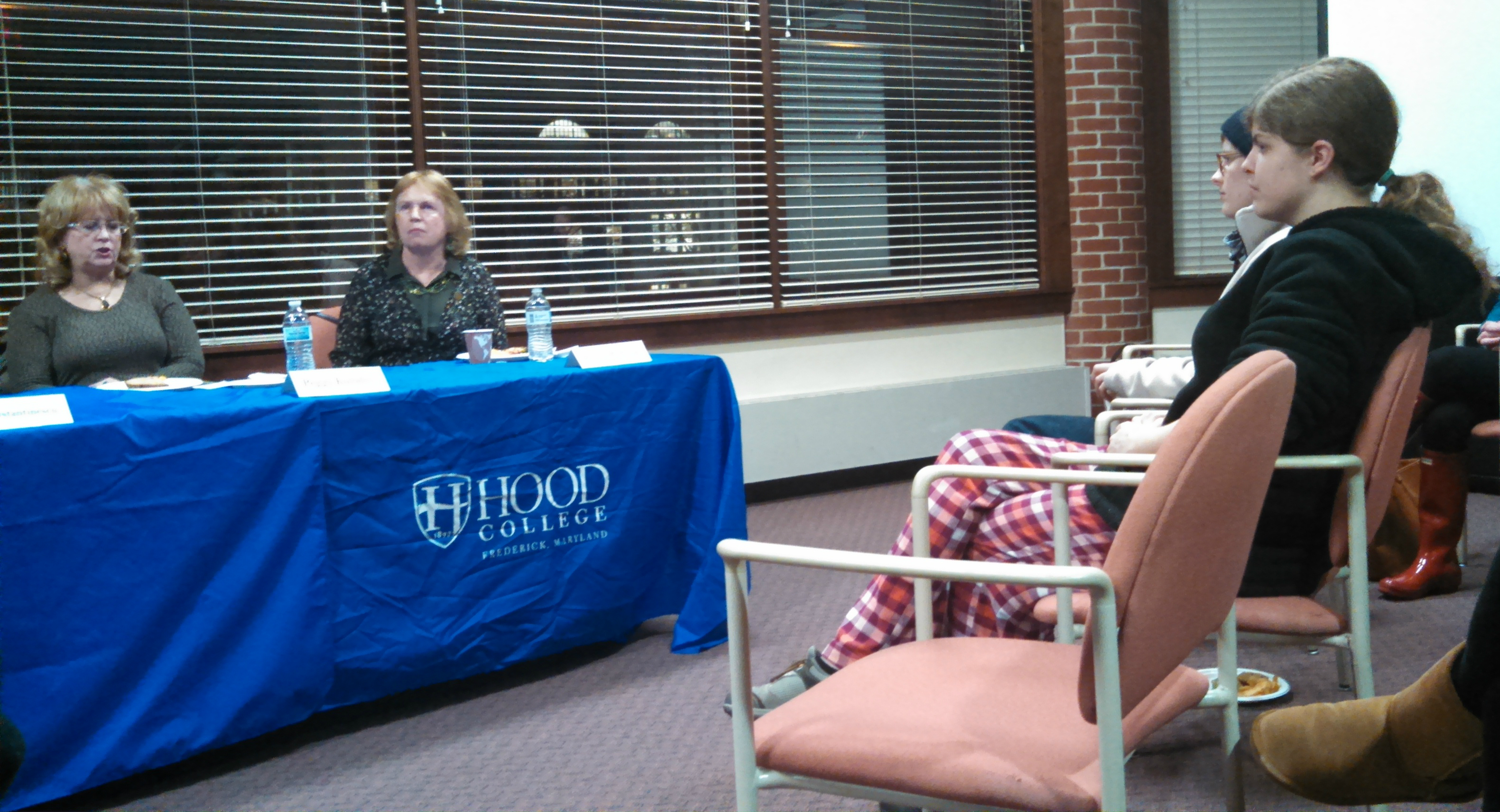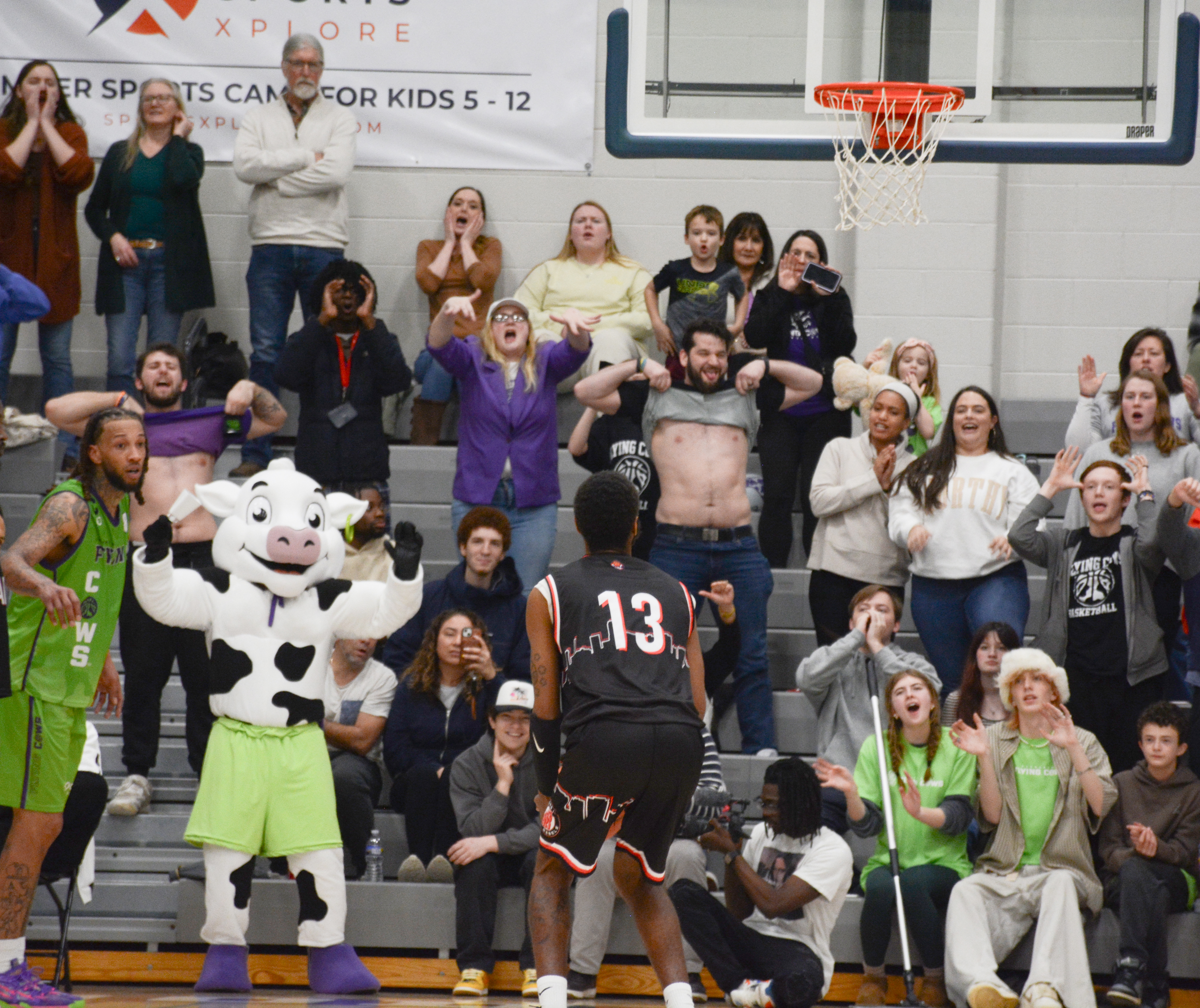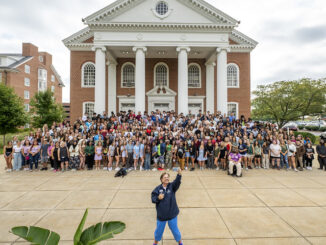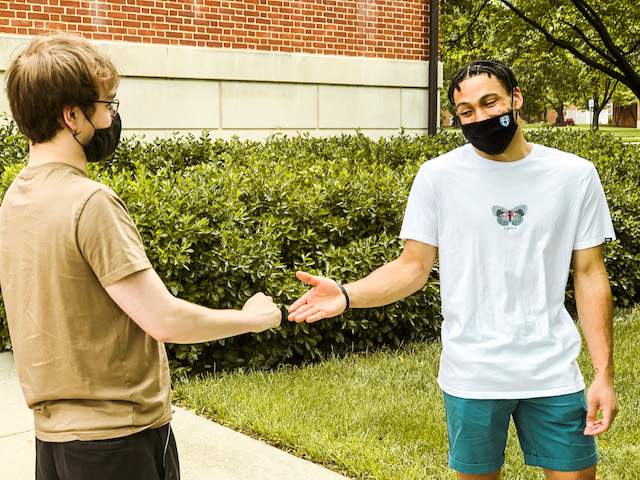
By Jeanne Robinson
The Delta Alpha Pi honor society hosted their second disability panel discussion on Feb. 18 at 7 p.m. to address what it is like to have a disability and teach those with disabilities.
Members of the panel included two students with disabilities, a representative from the Center of Academic Achievement and Retention (CAAR) and the disability services coordinator.
There are 110 to 115 students with disabilities at Hood College that Reis, coordinator, works with, she said. Disabilities include psychological, physical and medical conditions, Reis said.
“You can’t help it [disabilities],” said CAAR representative Michelle Townsend. A lot of disabilities are hereditary. Townsend has to help people on a daily basis to feel fulfilled, she said.
Many people are misdiagnosed with having a disability, said Peggy Kolodny, an art therapy teacher and art psychotherapist at the University of Maryland. Kolodny has young twins with attention deficit disorder (ADD) and a daughter at Hood who is hearing impaired.
Children are not meant to sit down for six hours at a time, said Professor Constantinescu, Assistant Professor of Special Education. Many are diagnosed with ADD from their abundance of energy at early ages, which is too young for them to be tested, she said.
“There is a place for pity and empathy,” said Constantinescu about dealing with children with disabilities. However, that does not give teachers an excuse to “drop the bar” with the students, she said.
Life can be difficult for those who have a disability later in life, according to Eileen Rudnick, president of Delta Alpha Pi and a senior at Hood. Rudnick has a brain injury from a motor vehicle accident she was in 15 years ago. Rudnick chooses to find the positive side of her disability.
Being in the accident is the “best thing that ever happened to me,” Rudnick said. She is “blessed” for the opportunities she has now such as becoming a student, which she could not do before, she said.
Constantinescu said Rudnick’s outlook is “post-traumatic growth.” Rudnick found that her friends disappeared when she changed, and people treat her like a child, which she does not like.
Instead of dwelling on the reactions of others, Rudnick instead became a writer and a tutor, she said. She is thankful for her disability because of this, she said.
Hood “embraces students with disabilities,” according to the disability services webpage.
Maggie Thomas, senior and Art and Archeology major, said she chose Hood because of the quality of the disability services. Thomas has dyslexia and ADD, she said.
According to Thomas, not being able to see dyslexia and ADD makes the disabilities “not real” for some people. Diagnosed with dyslexia since elementary school and ADD in late middle school, Thomas said, “It’s successful to say I overcame those disabilities.”
There is a culture shift going on in how people view those with disabilities, Reis said. But, it is still not enough compared to other minorities, Constantinescu added.




Be the first to comment